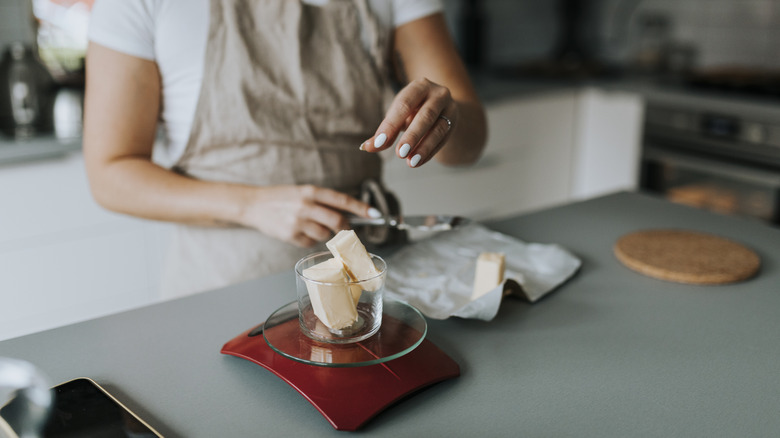Most people would agree that butter makes everything better — especially when it comes to baked goods. Imagine a croissant without its signature richness or a cinnamon roll without its melt-in-your-mouth texture. But does that mean all butter is made equal? Not necessarily, according to Alton Brown.
In a segment on “The Late Show With Stephen Colbert,” the chef noted that most baking recipes call for unsalted butter, which allows you to control salt quantities and prevent over-salting. Not only that, but Brown explained that the price tag of the butter does actually matter. More expensive butters tend to be higher quality, and cheaper grocery store butters often contain a higher percentage of water and less butterfat, which can affect both flavor and texture.
That doesn’t mean you need to splurge every time, though. When you’re at the store trying to choose butter, simply opt for unsalted butter that has a high butterfat content (82% and above) and no additives or preservatives. European-style butters — like Kerrygold (the best store-bought butter brand) or Plugrá — often meet that standard and taste different from American butter, whether imported or made domestically. Thanks to European regulations, these butters have higher butterfat content than most American brands, making them a solid choice for bakers.
How butter actually impacts your bakes
There’s no question that butter brings a rich, creamy flavor to baked goods, but its role in baking goes far beyond taste. Butter helps create structure, volume, and texture in everything from layer cakes to pie crusts. When creamed with sugar for cakes and cookies, butter traps air, giving batters volume and allowing eggs to emulsify more smoothly. This emulsion is key for a stable structure and proper rise once your batter is baked. If you want to add extra flavor to your cakes or cookies, Alton Brown also recommends browning your butter in a light-colored pan to add nuttiness and depth (just be aware that it will lose some water content).
In pastries like puff pastry or croissants, butter takes on the job of flakiness. Laminated dough relies on alternating layers of butter and dough. As the butter melts in the oven, its water turns to steam, expanding the layers and helping them lift. At the same time, the fat coats the flour, limiting gluten formation and ensuring a tender, delicate crumb. Thanks to its many important roles in baking, following Alton Brown’s advice to use high-quality, unsalted butter ensures you get the best results for bakery-worthy treats.






